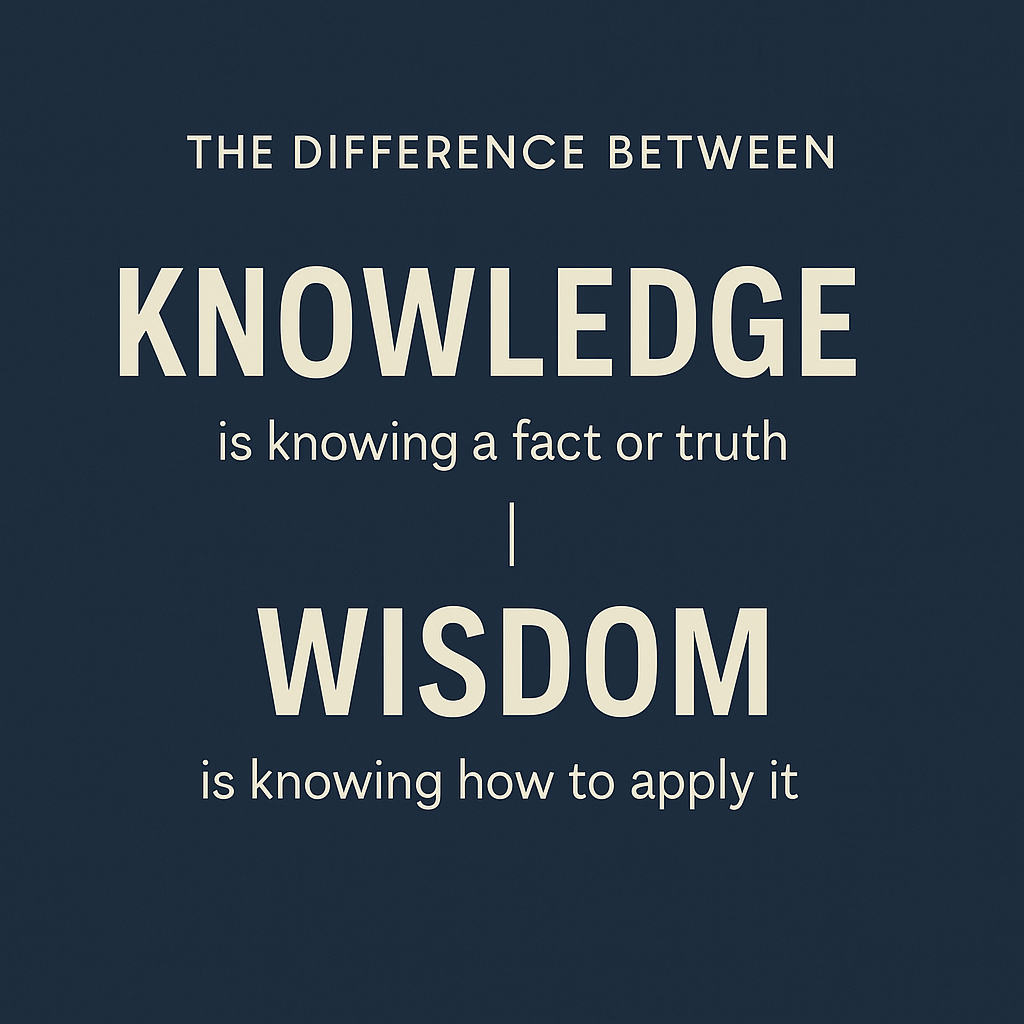
The Difference Between Knowledge & Wisdom
In our pursuit of personal growth and success, we often hear about the importance of acquiring knowledge and developing wisdom. While these two concepts are related, they are not the same. Understanding the distinction between knowledge and wisdom can help us make better decisions, live more fulfilling lives, and contribute meaningfully to society.
What Is Knowledge?
Knowledge is the accumulation of facts, information, and skills acquired through experience, education, or research. It involves understanding concepts, theories, and practical techniques in various fields.
- Knowledge is based on learning and memorization.
- It can be measured through tests, degrees, and certifications.
- It is often stored in books, digital resources, and human memory.
- Anyone can gain knowledge through study and observation.
For example, knowing that fire is hot, that excessive sugar consumption can lead to diabetes, or that the earth orbits the sun are all forms of knowledge.
What Is Wisdom?
Wisdom, on the other hand, is the ability to apply knowledge with insight, good judgment, and moral understanding. It is not just about knowing facts but understanding how to use them appropriately in different situations.
- Wisdom comes from experience, reflection, and discernment.
- It involves making sound decisions based on values and long-term consequences.
- It cannot be simply learned; it must be developed over time.
- It is often associated with maturity, emotional intelligence, and spiritual insight.
For example, wisdom is knowing when to speak and when to remain silent, how to manage relationships with kindness and fairness, or how to handle success and failure with humility.
Key Differences Between Knowledge and Wisdom
| Feature | Knowledge | Wisdom |
|---|---|---|
| Definition | The collection of facts and information. | The ability to apply knowledge with good judgment. |
| Source | Education, books, experience. | Life experiences, reflection, spiritual growth. |
| Focus | Knowing facts and skills. | Applying knowledge in meaningful ways. |
| Measurement | Can be tested and measured. | Cannot be easily quantified. |
| Example | Knowing how to drive a car. | Knowing when and where to drive safely. |
The Role of Knowledge and Wisdom in Life
Both knowledge and wisdom are important, but wisdom is what truly guides our actions and decisions. A person can have vast knowledge but still lack wisdom in how they use it. On the other hand, a wise person may not have formal education but understands how to navigate life successfully.
How to Grow in Wisdom
- Seek Guidance – Learn from mentors, elders, and spiritual leaders.
- Reflect on Experiences – Evaluate past mistakes and successes to make better decisions.
- Practice Discernment – Avoid impulsive decisions and think about long-term effects.
- Apply Moral Values – Use ethical principles when making choices.
- Pray for Wisdom – Spiritual wisdom comes from seeking divine direction.
Conclusion
While knowledge is powerful, wisdom is essential for living a balanced and meaningful life. Knowledge can open doors, but wisdom ensures that we walk through the right ones. As Proverbs 4:7 says, “Wisdom is the principal thing; therefore, get wisdom: and with all thy getting get understanding.” By seeking both knowledge and wisdom, we can navigate life with confidence and purpose.
“Don’t forget to share this post with your friends! #KnowledgeVsWisdom #LifeWisdom #WisdomOverKnowledge”

